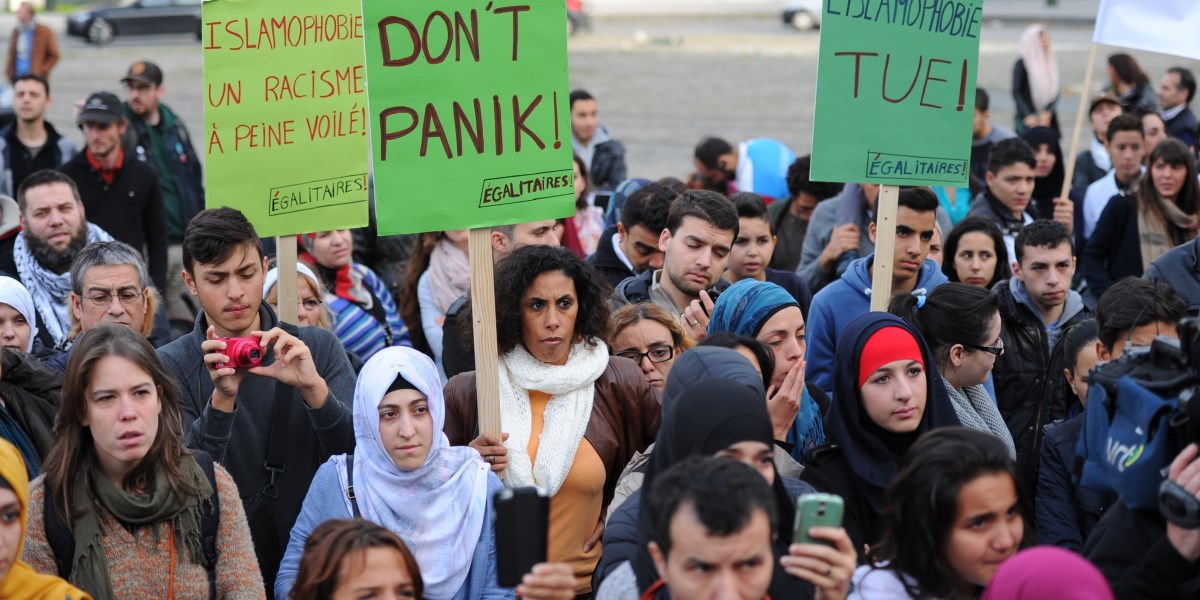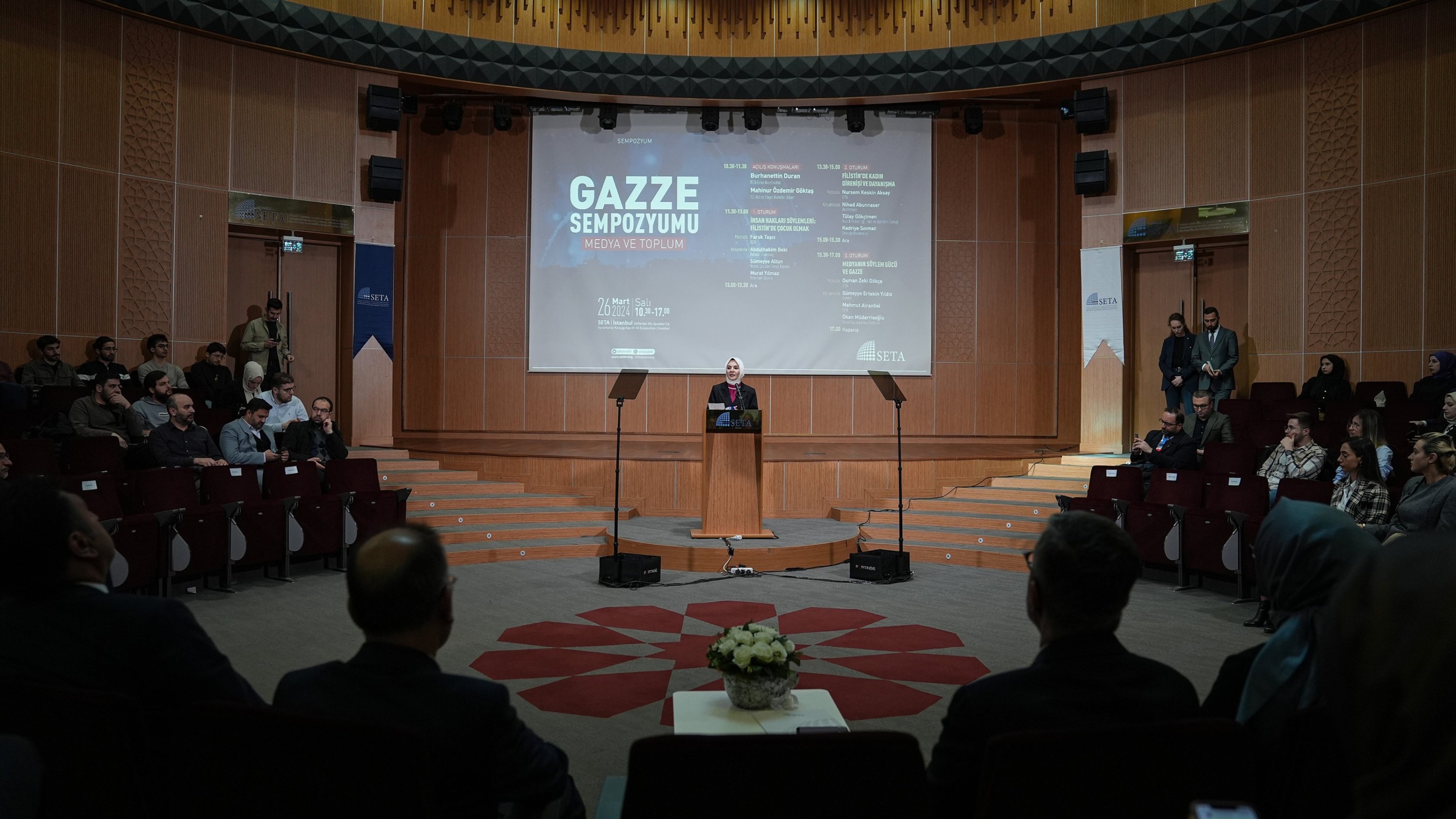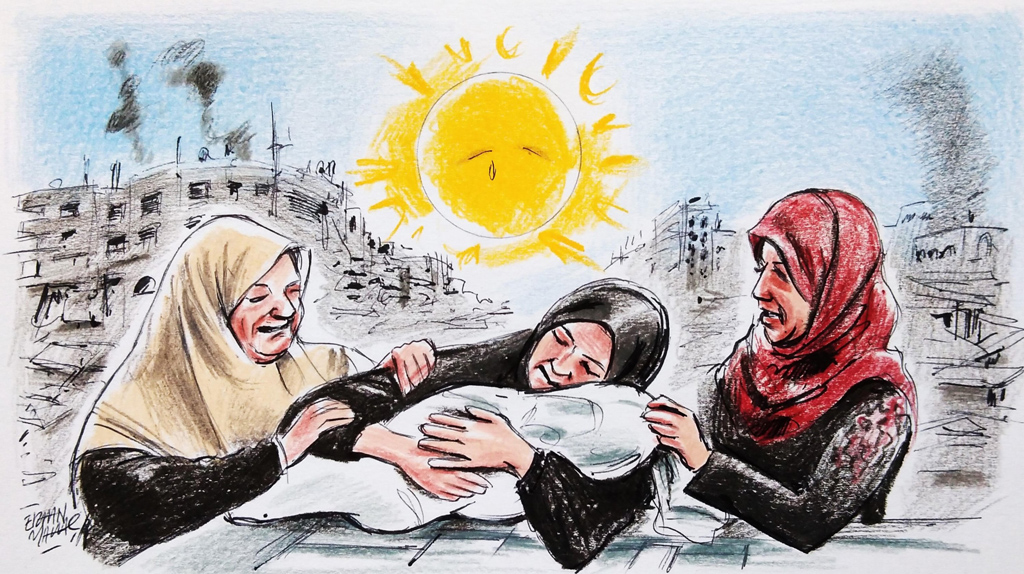Islamophobia or anti-Muslim racism is still not even acknowledged as a crime or a motivation for hate-crime in most European countries. In fact we still face a continuing absence of reliable and nation- as well as European-wide data on Islamophobic incidents.
In 2014, only five states of the 57 Organization for Security and Cooperation in Europe (OSCE) member states officially reported on hate crimes against Muslims, whereas civil society reported in 21 countries.
The European Islamophobia Report (EIR) analyzed Islamophobia in 25 European countries in 2015. This is one part of the gap, where the EIR attempts to make a contribution. The other aspect is that there are still many people in Europe who refuse to even recognize that there is such a thing as Islamophobia or anti-Muslim racism.
To give an example: In Austrian daily Der Standard, an article was published highlighting the main findings of the EIR. Within the first 6 hours, there were 1,000 comments. A day later, that figure grew to more than 2,400. And unfortunately, we could not find a single positive comment.
One commentator said: "Europe needs another Prince Eugene". For those of you unfamiliar with Prince Eugene of Savoy: He was a general of the Holy Roman Imperial Army who fought back the Ottomans at the Siege of Vienna in 1683.
In his manifesto entitled "2083: A European Declaration of Independence", Anders Behring Breivik draws exactly on this narrative of a perpetual historical war between Christianity and Islam.
Another post said: "The problem with Islam is that it is a comprehensive totalitarian ideology with its own law". We can clearly see in these two examples the unquestioning negative framing and narrowing down of the imagination of what these people call "Islam".
THE CONSPIRACY OF AN ‘ISLAMIZATION OF EUROPE’
Islamophobia works without Muslims. This can be demonstrated particularly in countries with small Muslim populations.
Although the facts tell us that Muslims have never been implicated in any kind of terrorist attacks in these countries, the conspiracy of the "Islamization of Europe" is abused by a number of high-ranking politicians in these countries.
By far, it is not only some fringe right-wing politicians but also, in contrast, mainstream politicians who have abused Islamophobia. The far-right has indeed benefited greatly from the public discourse and general alienation of Muslims in the perception of many Europeans.
The report was able to show that all right-wing political parties have used Islamophobia to mobilize voters and legitimize their policies. A general effect of this is that an increasingly antagonistic language can be observed in political debates in many countries.
No doubt three factors determined the debate on Islam and Muslims throughout Europe in 2015, whether in France, where two terrorist attacks took place, or a country like Lithuania, which is far from these incidents.
In addition to the two terrorist attacks, the so-called refugee crisis represents a third pillar in the striking rise of Islamophobia in the political discourse. Regional as well as national elections were debated around these issues.
The Paris terrorist attacks had far-reaching policy implications, especially in the field of countering violence and extremism.
Since the Paris attacks, the public has generally become more aggressive towards Muslims. Not only in France has the number of attacks on mosques and Muslims risen enormously in quantity, but also the security apparatus has profited immensely by being highly subsidized.
After last November in Paris, public authorities, notably by raiding mosques and Muslim associations and by targeting certain imams, have bolstered the by-now largely shared view that Muslims are a security issue in the country.
Assaults on Muslims and mosques, and the Islamophobic discourse more generally, skyrocketed both after the Charlie Hebdo and the Bataclan attacks. This has had deep implications for other countries as well.
Most notably, peaks in Islamophobia in Belgium correlated with the events in Paris. But also countries further away that were unrelated to the Paris attacks were concerned.
For instance, in Austria and the Czech Republic, the recorded numbers of harassment on the streets and violations of Muslims have been rising. The fact that we are able to report this may have only to do with a heightened consciousness on the part of Muslims who seem to have become more active in talking about this discrimination, after the debate over Daesh became omnipresent.
The discourse on Daesh has also helped political parties as well as new social movements to organize. The rampantly Islamophobic Pegida and its branches as well as the Identitarian movement – a manifestation of the European New Right – are the two most famous social movements to be mentioned here.
INSTITUTIONAL DISCRIMINATION
In the context of institutional discrimination, research has repeatedly referred to the manner in which pupils, i.e. in the Irish education system, are exposed to discriminatory enrollment policies, impacting those from minority faith/no-faith backgrounds.
Irish equality legislation allows for educational institutions, primarily those affiliated with a particular faith, to refuse entry to those students, who in essence, do not belong to that faith – something particularly problematic in the Irish context, as the vast majority of schools remain under the patronage of the Catholic Church.
Despite the promise of a legislative change in 2015, enrollment policies such as these as well as a lack of national policy over the wearing of headscarves at school provide a context wherein particularly Muslim school goers are exposed to institutionalized exclusionary practices. This has to be addressed if the structural underpinnings that cater to Islamophobia are to be challenged.
In Austria, a Foreign Ministry report allegedly analyzed the spread of extremism in private Muslim kindergartens. Although on a political level the Viennese governors denied the allegations of the spreading extremism in Muslim kindergartens, a consequence of the debate was that officials undertook to profile kindergartens with Muslim personnel.
Kindergarten personnel said they were interrogated by officials over whether children would be taught to pray, whether they were taught the Koran, what language they spoke, if they would celebrate Santa Claus and Christmas, and were also told that they had to because this was part of Austrian tradition.
In fact and to the contrary, the educational plan (66 pages) of the Viennese government nowhere mentions anything about "Austrian values" or "tradition", not in a single sentence.
THE MEDIA SPREADING ISLAMOPHOBIA
The central element that helps to create this negative atmosphere is the media. Media outlets all over Europe all too often engage in an "us vs. them" presentation of Muslim communities that incorporates an alleged incompatibility between "Islam" and European values.
It appears that Western values are associated mostly with the Christian faith, while Eastern ones are connected to the Muslim faith.
This binary of East vs. West, translated into Islam vs. Christianity, or "enlightenment" and "progressiveness" vs. "backward Islam", strengthens identity constructions and narratives of a homogenized "us" vs. "them", and in consequence threatens an inclusive understanding of diverse and multicultural European societies.
Not only journalists and bloggers but also web moderators and ordinary people have used the media and cyberspace as a vehicle to spread fear and hatred of Muslims.
Even in countries like Lithuania, where Islamophobia, according to our research, is nearly absent, the Internet seems to play a pivotal role in the emergence and dissemination of Islamophobic attitudes.
The central role of the Internet not only in the dissemination of prejudices but also in the formation of Islamophobic attitudes can be seen in the Czech Republic. Here, the formation of the "Bloc Against Islam" emerged out of groups active in social media and active in local demonstrations against mosques.
COUNTERACTING ISLAMOPHOBIA
Coming back to a central topic related to terrorism, it is also important not to forget that Islamophobia may have an impact on some individuals that leads them to more extremist views and terrorist acts such as the one perpetrated by Anders Breivik – the Norwegian mass killer.
In contrast, Muslims should be supported in counteracting Islamophobia and thus must be seen as allies in the fight not only against extremism but especially in the fight against racism in Europe.
Positive examples of empowerment are the Dutch initiative "Meld Islamofobie!" or the Austrian "Dokustelle Muslime", where people can register anti-Muslim hate crimes.
We especially urge political parties to increasingly take a stance against Islamophobia in their societies, whether from right-wing politicians or discrimination in the private job market.
Both civil society actors and states should acknowledge the seriousness of this issue and develop concrete policies to counter Islamophobia. First and foremost, Islamophobia has to be acknowledged as a crime and should be included in all national and European statistics throughout Europe.
[Anadolu Agnecy, April 18, 2016]







